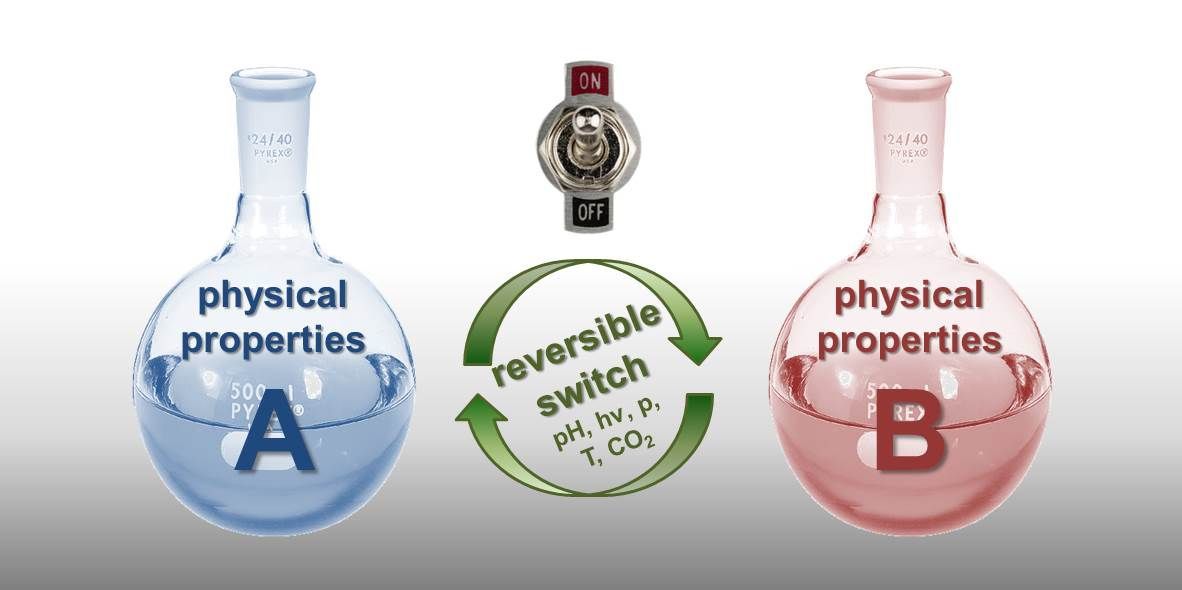One of the biggest obstacles in green chemical processing and separation processes is the need of specific solvents for each specific process step. The choice of the right solvent for each step is critical due to varying solubility of substrates, products and catalysts. Accordingly, high amounts of various solvents are necessary in most processes. Dipolar aprotic solvents such as dimethyl sulfoxide or dimethyl formamide are commonly used to overcome solvation challenges but due to their high boiling points separation is still an important issue. The resulting processes are economically challenging and recycling is extremely costly. Therefore, the development of recyclable solvent systems with minimized environmental footprint becomes necessary.
An attractive alternative might be a solvent system, which can perform a phase transition as a response to an external stimulus. In this respect, especially switchable solvent systems have gained researchers attention in the last decade as they can change their properties abruptly and reversibly. External stimuli include light, voltage, a change in pH, temperature and pressure. Another interesting alternative is the reaction of base and alcohol in the presence of CO2 forming alkyl carbonates with different physical properties. Properties reversibly changed in this manner can be polarity, solubility, ionic strength or conductivity. This concept paves the way to several potential applications in green chemical processing, such as catalysis, separation or dispersion technologies with a focus on the reduced energy consumption and improved recyclability.
Switchable solvent systems address reaction, separation and recycling challenges. But as the systems are not yet fully understood in terms of phase generation and separation kinetics, long term stability and product purity further investigations and simulations are needed. Therefore, in the context of this event innovative research will be presented concerning the challenges mentioned above to give insights into the current status and future perspectives regarding switchable solvent systems and their potential applications.


